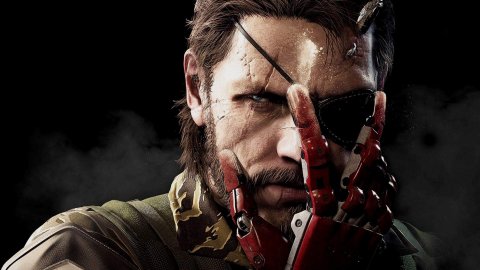The future of Metal Gear Solid without Hideo Kojima

A bond that was interrupted, however, in 2015, due to the abrupt divorce between Kojima himself and Konami. Let's try to understand together what it could be the future of the series without its creator. Assuming there is a future.
Metal Gear and Kojima: an indissoluble couple
Metal Gear Solid has redefined the modern concept of stealth game Metal Gear and Kojima. An inseparable pair that spanned almost thirty years and that has crossed every family of consoles: from the MSX2, with the first chapter dated 1987, to the last generation of machines that closed the trend with The Phantom Pain. , in which the growing greatness of the saga has been able to restore its creator a place in the Olympus of videogame authors.Medals, those of Kojima, earned on the field thanks to original innovations and legendary characters who have entered the collective imagination by arrogance. As is known, the rift between Kojima and Konami has broken the idyll between the father and his creature, effectively transforming The Phantom Pain into a title stub and with a troubled gestation.
The narrative that makes the difference
A scene from Metal Gear Solid 3: Snake Eater But can there be a Metal Gear Solid without Hideo Kojima? In Konami they think so, so much so that they will publish Metal Gear Survive in 2018. The title, however, turned out to be a strongly divisive experience, which remained faithful to Metal Gear Solid V on the technical side, while it was decidedly different from a spiritual point of view. What Metal Gear has taught us is that the quality of the narration, the architecture of the plot and the construction of the characters are aspects closely linked to the inspiration and ability of his parent, and will hardly be replicable in the future without his. direct contribution.Just think of iconic situations such as the mental battle against Psycho Mantis in Metal Gear Solid for Playstation, that tactic and position that saw us face The End in the third chapter on Playstation 2, or the passionate Metal Gear Solid IV: Guns of the Patriots finale - sequences that we are sure would not have had the same punch and power if they had come out of a different pen. Furthermore, some of the mechanics designed by Kojima have been able to rise to real seminal elements of the stealth genre, defining the category and establishing a before and after Metal Gear.
Spin-off: Metal Gear Survive
Metal Gear Survive is not quite what fans wanted The narrative thrust of the main storyline unfortunately seems to have run out, but it is true that the universe woven by Kojima is so vast and multifaceted that it allows unimaginable ramifications. The amount of cardinal characters and supporting actors is endless, and could always provide Konami with a hypothetical assist for a chapter free from the galaxy of Snake and associates.As Metal Gear Survive demonstrates, a new Metal Gear orphan of Hideo Kojima is certainly possible, but the price to pay for what concerns the consents and the intrinsic value of the work could be really high.So is it still worth the risk? Setting up another Metal Gear could be complicated and represent a real bleeding for Konami, which would be forced to bring on board new developers capable of artistically addressing the project, for an authentic year zero of the saga.
Expansions
A shootout in Metal Gear Solid 3: Subsistence Ultimately, Konami has a second option that is much more prudent and one that could ensure significant income, while still leveraging the hype of the public: over the thirty years covered by the series, Konami has repeatedly shown its interest in squeezing the brand as much as possible, aware of its grip on fans and the results that this entails.Starting from Metal Gear Solid: Special Missions, released on Playstation in 1999, are in fact numerous expansions published by the software house, which has also tried to capitalize to the maximum income through the Remastered.
Emblematic is the example of Metal Gear Solid 2: Sons of Liberty and Metal Gear Solid 3: Snake Eater: both flanked by the respective expansions Substance and Subsistence, which then found their place together with Peace Walker in the HD Collection now on PS3, Playstation Vita and Xbox 360.
Remastered and remake
A promotional photo of Metal Gear Solid: The Twin Snakes The Metal Gear series is to all intents and purposes the snake that lays eggs Konami's gold and this leads us to consider a further scenario: that of remakes. the first Solid chapter or the two episodes for MSX2 are in vogue.The latter would be the two titles that would require the most restructuring work, not being able to guarantee an experience in step with the times now, due to not exactly benevolent aging. From theirs, however, they would have the mythological aura that accompanies them, that of two milestones, now distant in time, which have been able to lay the foundations of a genre, light years before the saga plunged into the third dimension.
To stay true to the original setting and not betray its essence, it might be desirable to imagine a makeover with a linear structure, but it's impossible to overlook the way video game adventures have evolved over thirty years. And more specifically, how The Phanton Pain launched the brand towards the open world direction, and what if the eventual remake had an episodic form? After all, the road traced by Square Enix with Final Fantasy VII Remake has made a lot of talk about itself and it is not excluded that someone else will follow his example in the future.
Have you noticed any errors?